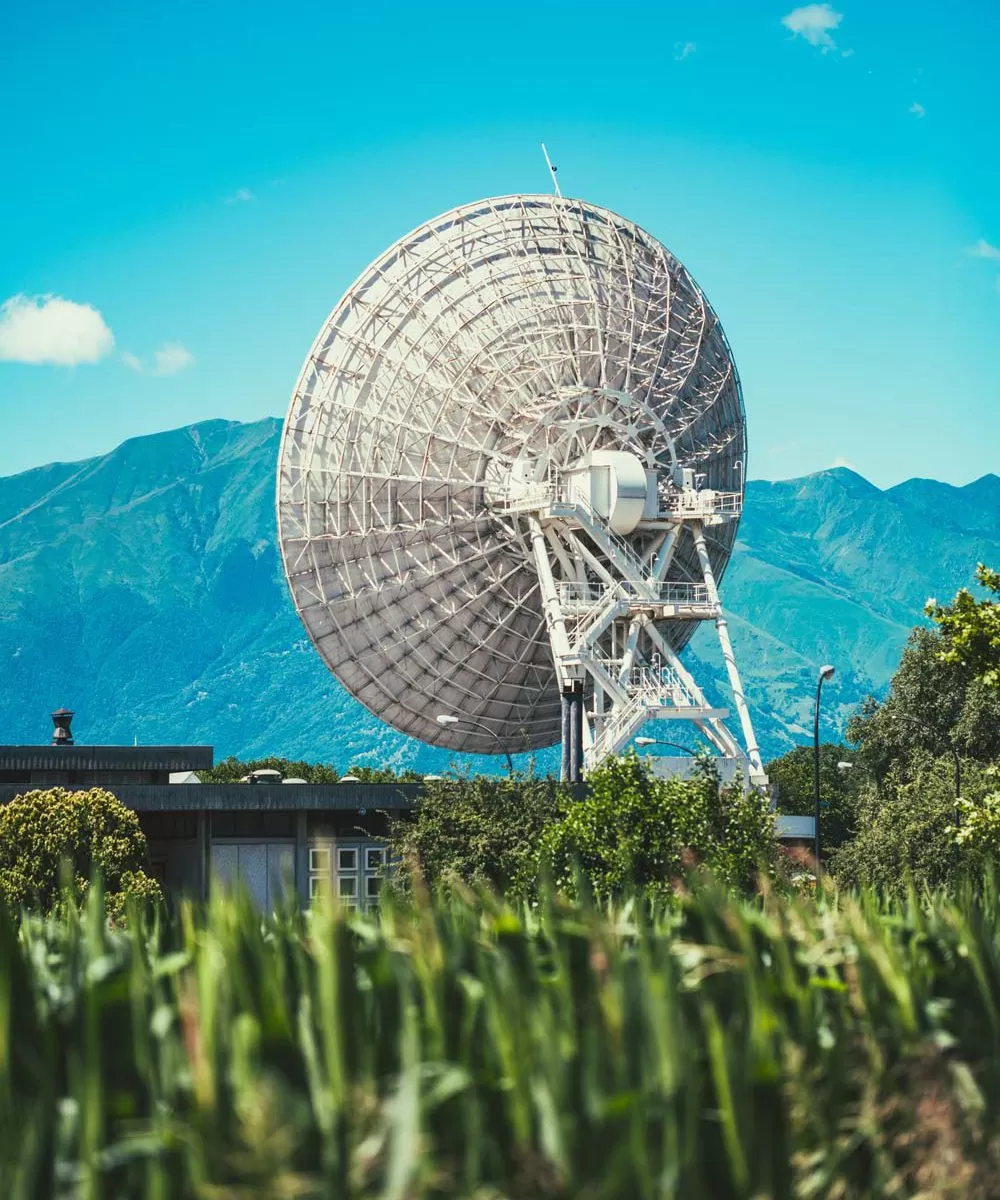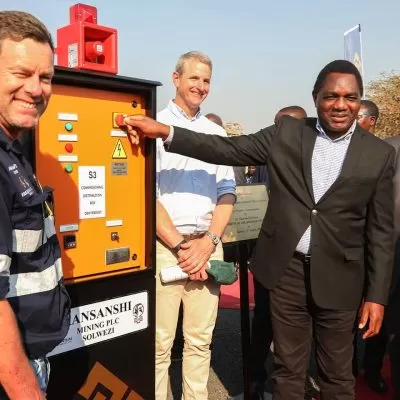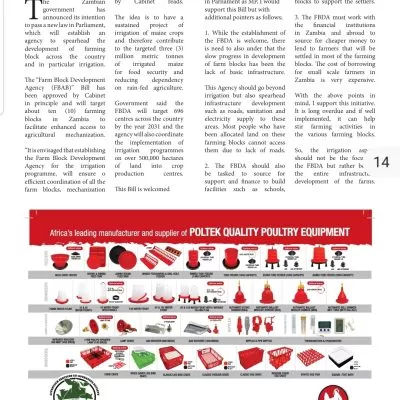By John Chola
Lusaka – October – THE World Economic Forum’s Global Risk Report reveals that five of the top 10 global risks are related to the environment and many other research think tanks on Climate Change including the United Nations have found and documented that Africa is one of the most vulnerable continents to climate change.
Many industries – from agriculture, to insurance, to oil and gas – are grappling with the effects of climate change. But for telecommunications, the need to maintain their services during extreme weather events such as, drought causing low water levels and acute load shedding, wildfires, hurricanes, floods and mudslides is particularly critical, because connectivity serves as a lifeline in the daily lives of citizens. Whether we want to admit it or not, the telecoms sector is a key driver in todays’ economy.
While telecoms are a lifeline in today’s high-tech based business delivery and a key player in social service provision, the sector is grappling with climate change effects which have put its infrastructure at risk.
Across Zambia, like many other parts of the world, events related to extreme weather are increasingly damaging or threatening, forcing the industry’s major providers to take costly emergency measures and devote more resources to keeping the nations’ communications infrastructure intact.
The cost of maintaining communications networks in the face of those increasingly frequent weather-related emergencies keeps on rising.
For instance, telecommunication networks rely on uninterrupted commercial power for their sites and to keep them running when electricity is unavailable has forced providers to install backup power – from batteries to full-on fuel dependent generators – at their central offices, data centers and towers sites.
Maintaining continuous connectivity is invaluable – particularly today, as many businesses rely on remote and hybrid work models. As such, the chief priority of every telecommunications service provider like those under the Global System for Mobile Association of Zambia (GSMAZ) which comprises of all mobile network operators (MNOs), is to ensure their customers’ networks remain up and running even during disruptions like the current over 12 hours daily load shedding.
Experts say, the heightened frequency and intensity of natural disasters such as low rainfall leading to drastically reduced hydro power generation and supply, which result in prolonged power outages, threaten the always-on status of networks.
During a prolonged power outage, telecommunication options become more limited as in case of batteries and fuel supplies which also get depleted.

Further, because of systemic risks and interdependencies between many vendors, multiple telecommunication services may fail at the same time.
With ever increasing climate change effects resulting in unavoidable power outages, telecommunication companies have been left with no choice but to start implementing network remediation and management solutions, to safeguard their customers’ networks from prolonged downtime.
The consequences of prolonged network downtime:
Unknown to many, Telecommunication firms experience the most significant fallout causing service providers’ customers to face suspended operations, compromised data – due to network outages, resulting in substantial financial loss from lost revenue, unmet deadlines, and inevitable recovery fees.
According to studies, these monetary consequences are amplified for telecommunication companies, who will spend more money than most other industries in trying to fix the outages.
The studies also discovered recently that the average revenue cost of unplanned application outages was over thousands of dollars per hour. Outside of lost revenue, 47 per cent of surveyed IT leaders said that lost productivity was the costliest aspect of downtime.
For example, customer service employees have to pacify thousands of frustrated or angry customers. Network engineers must also endure the stressful task of attempting to get the systems up quickly. Plus, network engineers usually travel on-site to fix network issues, which could be perilous during harsh weather.

In extreme scenarios, network downtime due to disruptions such as power outage negatively impact critical services like hospitals and first responders, resulting in terrible press for the service provider.
Impact on mobile money operators and customer finance:
Mobile money operators in Zambia rely heavily on consistent power supply for their operations, including servers, data centers, and customer service centers. Prolonged load shedding leads to service disruptions, making it difficult for millions of customers to access their funds or perform transactions.
To mitigate the effects of load shedding, operators are also being forced to invest in alternative power sources like generators or solar power systems, which can significantly increase operational costs.
Frequent service outages frustrate customers as they cannot reliably access their money when needed.
Mobile Money is now like a ‘currency’ as individuals and many small businesses rely on mobile money for their day-to-day transactions, but prolonged load shedding is disrupting these economic activities, leading to financial losses for businesses and inconvenience for customers.
It is a known fact that mobile money plays a crucial role in financial inclusion, and as the 8th National Development Plan dictates, digital financial inclusion is a key economic driver.
GSMAZ response to Climate Change in Zambia
Telecommunication companies including service providers and tower operators like IHS Zambia and others under Global System for Mobile Association of Zambia (GSMAZ) have now been left with no choice but to spend millions of dollars in implementing robust strategies to mitigate the impact of load shedding and ensure the continuity of their services
The current GSMAZ Chairperson, Mr. Hussam Baday says all the telecommunications for mobile service work with well-equipped sites which are very critical in carrying the signal.
In an exclusive interview regarding challenges experienced for the telecommunication companies, Mr Baday said, hundred percent of the towers depend on energy with most of them connected to electricity grid which is ZESCO as the main source of power.
He explains that if there is no power and there is no energy it means there will be no communication from the respective towers or sites.
“The industry is currently under a lot of pressure due to extended load shedding hours. Our sites are connected to the national grid for operation but while we also have backup in form of batteries and generators, when there is no electricity for longer hours there is a need to refuel the generators. The downtime between trying to refuel the genset is the cause of disruption in service and that’s when customers find that there is no signal in the phone and are unable to make calls because there is no connection to the site. The current situation has a direct impact on us as this has compromised our provision of quality of service and sadly in turn making it difficult for people to do business,” laments Baday.
He further explains that all the sites are connected to what is called a data center, the core of the network which processes all the signals, and these are very critical centers that need to have reliable and sustained power and generators working all the time.
“Another issue we are grappling with now is the high operating costs. If there is no power supply that means we need to use fuel for those long hours. The supply and consumption of fuel has gone up as we now have to constantly supply sufficient fuel for the sites and data centers. Environmentally this also means that there are more emissions of carbon monoxide in the atmosphere thereby directly impacting negatively on the climate,” he said.
The load shedding is compelling operators to increase the purchase of more generators which also need to be maintained.
To avoid service disruptions during prolonged power blackouts in future GSMAZ says operators, ZICTA and the public private dialogue has acknowledged that telecommunication was now an enabler for many investors and that if telecommunication fails it impacts the whole economy and will directly impact negatively on the GDP of the country.
GSMAZ has since demanded that telecommunication be identified and recognized as a critical service sector the same as other sectors hence the need for load shedding exemption for especially our data centers as is now in manufacturing, agriculture and some of the mines
To our customers we are very sorry for the inconvenience that we are currently facing, and we apologize. We have all been impacted heavily by climate change which has even led to a national disaster and emergency. ZESCO cannot supply because there is no enough water. However, this is a time for us to unite, get things in a better shape and we are working with all our partners to get things better” assured Baday.
The fact is that load shedding will not end now and the onus is on all of us to find alternative ways to make our lives easier because the impact is not only on individuals but institutions and sectors alike.





